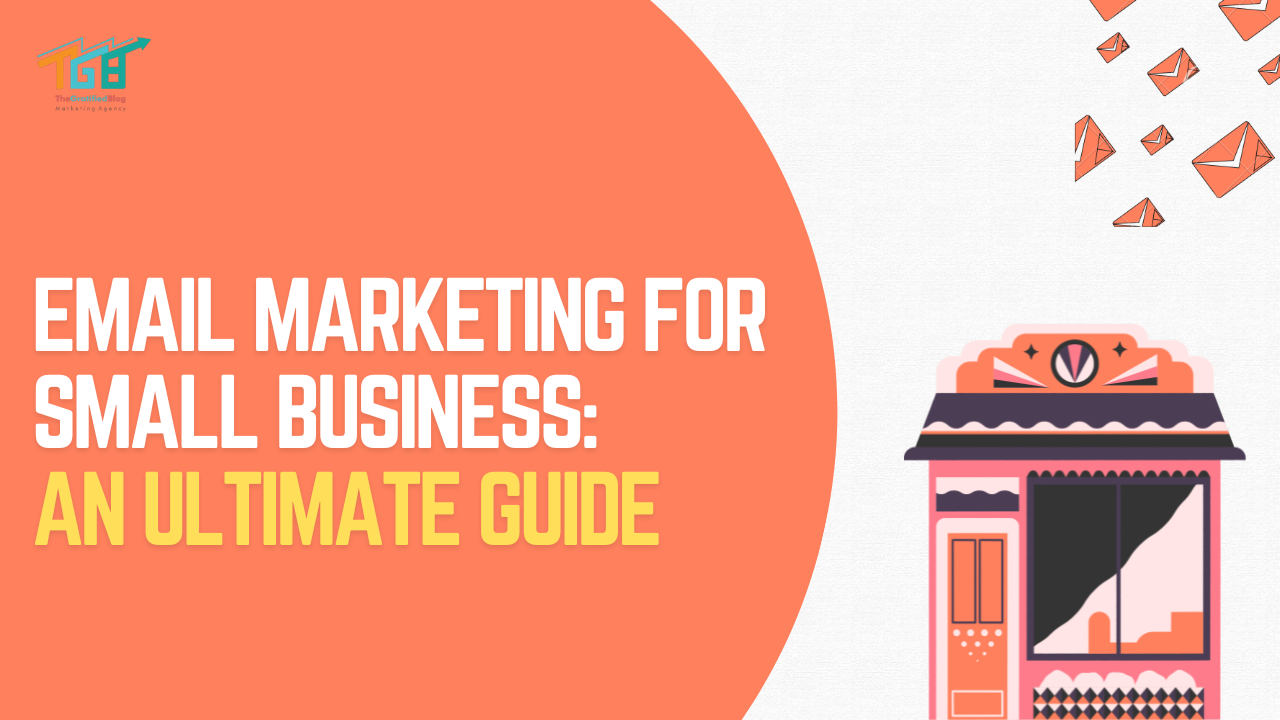
Small business owners’ most significant challenge is engaging customers and building lasting relationships with them.
It can take time to achieve initially, especially when businesses need more money or resources.
One of the best ways to achieve these goals is through email marketing.
It influences the customers by sending them relevant and timely content about the business and increasing purchasing decisions.
It leads a small audience into an online community of loyal customers enthusiastic about the offerings.
This article discusses email marketing for small businesses and the benefits, tips, and tricks to get the most out of this marketing tool.
What Is Email Marketing For Small Businesses?
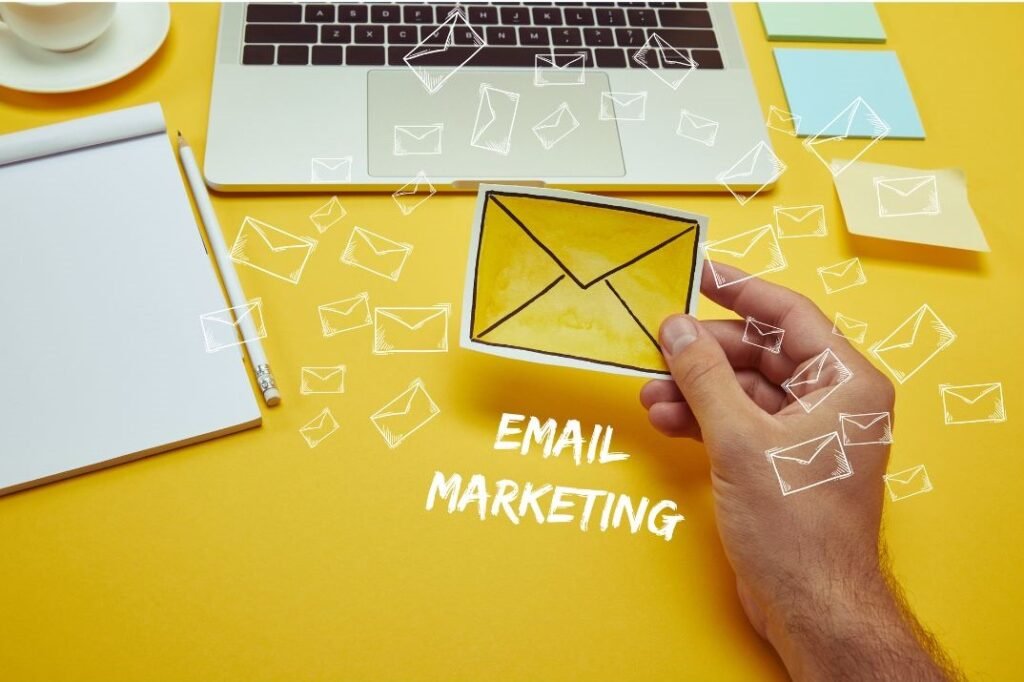
Email marketing is a potent and efficient method for small businesses to reach and engage customers.
Email marketing gives you excellent targeting capabilities and the capacity to tailor messages using customer data.
Small business owners only have a little time and money to spend on ad campaigns or marketing, so they need an easy and cheaper way, possible with this form of marketing.
Also, email marketing is estimated to drive 40 times the revenue, making it one of the most effective tools for driving sales and building customer relationships.
Benefits Of Email Marketing For Small Businesses
For the successful planning and execution of an email marketing campaign for your small business, you should keep several vital things in mind, including:
- Low Cost Per Customer
Companies spend millions of dollars on other advertising annually, but email marketing allows you to connect with customers at a much lower cost.
It is possible because you only pay for the number of people who open and engage with your emails instead of spending money to reach a larger audience who may not be interested in your business or products.
- Build Customer Relationships
It’s the best tool for building and maintaining meaningful customer relationships, leading to increased sales and brand loyalty by consistently providing high-quality content via email.
Email is more personal than other forms of advertising and allows you to interact with your customers in a way that feels authentic and tailored specifically for them.
- Higher ROI
According to recent DMA information, it has been shown to have one of the highest ROIs of any marketing channel and can help small businesses get more bang for their buck.
Email marketing lets you target your customers better and engage with them, leading to more purchases.
- Increase Customer Retention Rate
One of the biggest challenges for small businesses is retaining customers, which can be costly over time and lead to a loss of revenue.
Email marketing can enhance customer retention rates and prevent churn by providing targeted communications that speak to your customer’s interests.
Through this, businesses can continue building relationships with their existing customers and reach new ones through email, which can significantly impact their bottom line.
- Create An Authoritative Position
By consistently providing services, you can position yourself as a reliable authority in your industry and gain an authoritative position in customers’ minds.
It allows you to stand out from competitors and connect with people on a personal level, increasing the likelihood of repeat business.
- Enhances Brand Awareness
Through email marketing, small businesses can reinforce their brand identity and maintain top-of-mind awareness among their target audience.
By regularly sending emails, small businesses can keep their brand in recipients’ minds and reinforce their market presence. This consistency helps build familiarity and trust, making it more likely for customers to choose their brand when purchasing.
- Easy to Create and Personalize
Modern email marketing platforms offer user-friendly interfaces and templates that simplify creating professional-looking emails for small businesses. Additionally, personalization features enable customized messaging for individual recipients.
Email marketing tools allow small businesses to personalize their messages, addressing recipients by name and tailoring content to match individual preferences and behaviors.
Which Email Marketing Strategies Prove Most Effective For Small Businesses?
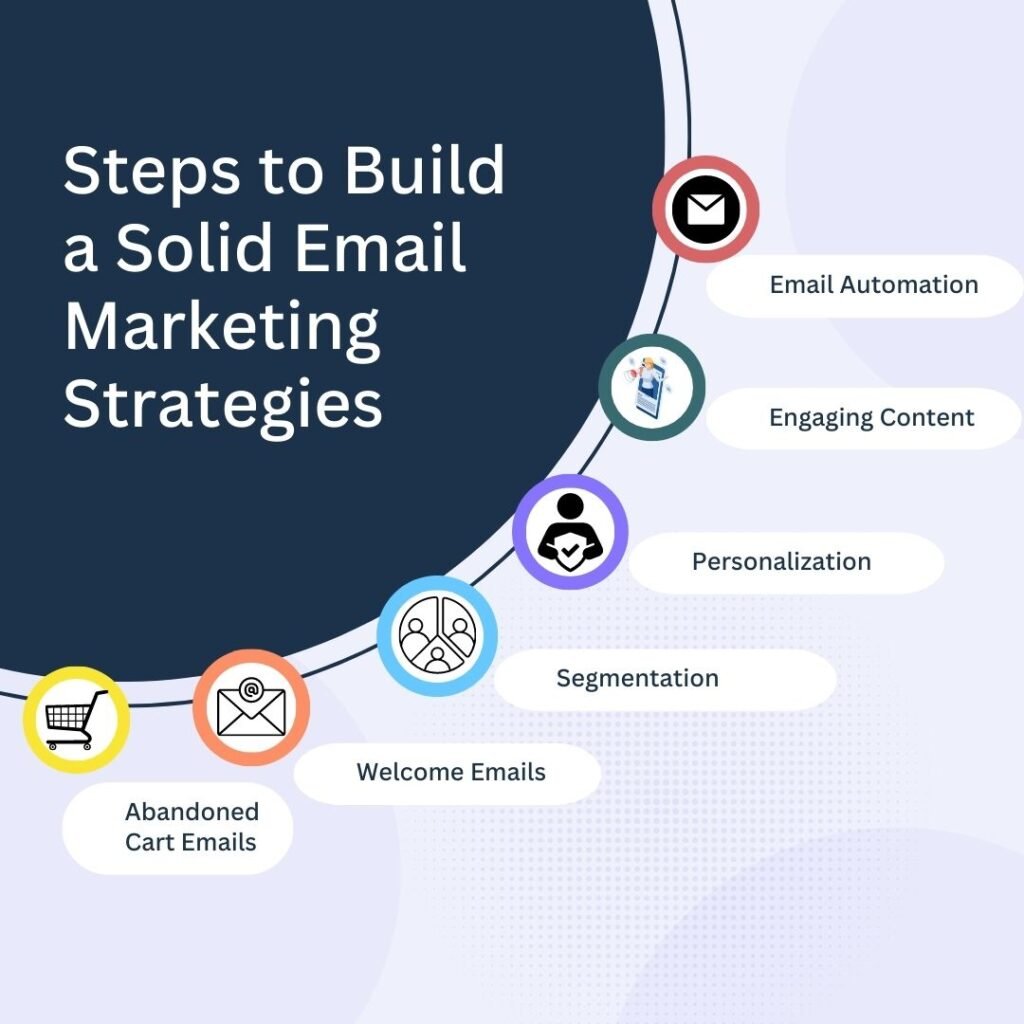
Several email marketing strategies work best for small businesses to engage their audience and drive results effectively:
- Personalization: Tailoring emails with recipient names, relevant content, and personalized offers increases engagement and fosters stronger customer connections.
- Segmentation entails dividing your email list into segments depending on demographics, behaviors, or preferences. This enables targeted messaging that resonates with specific groups, leading to higher open and click-through rates.
- Welcome Emails: Send a warm welcome email to new subscribers, introducing your brand and providing valuable content or a special offer. This establishes the foundation for a favorable customer experience from the start.
- Abandoned Cart Emails: reminding customers about products left in their online shopping cart. These emails typically include incentives or discounts to motivate customers to finalize their purchase. By strategically implementing this strategy, businesses aim to recover potential lost sales, reengage customers, and encourage them to complete the transaction. It serves as a proactive approach to address abandoned carts and enhance the overall conversion rate.
- Email Automation: Use automated workflows to deliver timely messages based on triggers, such as welcome emails, birthdays, or post-purchase follow-ups. Automation saves time and ensures consistent communication.
- Engaging Content: Delivering valuable and relevant content is crucial to maintaining subscriber interest. That includes sharing informative articles, helpful tips, or exclusive promotions. By consistently providing value content, you foster a positive relationship with your audience, encouraging them to open and engage with your emails actively.
- Mobile Optimization: Ensuring that your emails are optimized for mobile devices is crucial in the current digital era; given the increasing number of users who access emails on smartphones, a mobile-friendly design enhances readability and user experience. This optimization caters to the preferences and habits of a diverse audience.
- Call-to-Action (CTA): Clear and compelling CTAs are vital for prompting recipients to take specific activities such as completing a purchase, signing up for a webinar, or downloading content; a well-designed CTA guides subscribers on the desired path. The effectiveness of your email campaigns often hinges on the clarity and persuasiveness of these calls to action.
- A/B Testing: It encompasses the process of experimenting with various email elements like subject lines, content, or call-to-action (CTA) buttons to determine which resonates most effectively with your audience. By conducting these tests, you gain insights into preferences and can refine your campaigns, optimizing them for better engagement and results.
- Email Analytics: Monitoring email performance metrics, including open rates, click-through rates, and conversions, is essential for understanding the effectiveness of your campaigns. Analyzing this data provides valuable insights into subscriber behavior, enabling you to make data-driven decisions. This continuous evaluation and improvement process contributes significantly to the overall efficacy of your email marketing efforts approach.
Guidelines And Hacks For Email Marketing In Small Businesses

If you’re a small business looking to incorporate email marketing, the following tips and tricks can help make your campaigns successful. Here are some of our top recommendations:
Provide Easy Sign-Up And Subscribe Options
As a small business, it is crucial to make signing up and subscribing easy for customers through a website or social media.
You can increase the likelihood of getting new email subscribers and customers by providing clear instructions and an easy-to-fill-out sign-up form.
Refrain from complicating the process for your customers by requiring them to provide too much information or making it easier to access your content.
Offer Incentives And Offers
Give subscribers and customers an incentive to sign up by offering them a discount or a show they cannot get anywhere else.
They should know they get special access to sales, discounts, and exclusive offers by signing up. Incentivizing your subscribers is a great way to gain new customers and build their loyalty to your brand.
Honesty Is The Best Policy
Be honest with your subscribers about what you will send them and when. Delivering your promises can help build credibility in the eyes of your subscribers. Only send what they signed up for.
Customize Your Emails
Do personalize your emails and make them unique to each recipient. People are more likely to engage with an email that has their name in it or is customized to cater specifically to their interests and requirements.
Chances of engagement increase when somebody reads your email and feels like you are speaking directly to them.
Don’t Overdo The Process
Often, companies need to send more emails and inundate their subscribers with information, offers, and other content.
It has the potential to result in reduced engagement and loss of customers. Avoiding email marketing mistakes and rechecking the campaign before launching is essential.
Ensure you only send relevant content regularly so your subscribers will continue engaging with your business.
Include A Catchy Subject Line
The first impression is the last; your subject line determines whether or not the subscriber will open your email.
Please choose a subject line that stands out, grabs their attention, and encourages them to read more. It should have elements of value and emotion to elicit the desired response from recipients.
Mobile-Responsive Emails
In today’s digital landscape, ensuring your emails are tailored for seamless performance on various devices, encompassing mobile phones and tablets, is critical to display appropriately and increase the chances of engagement among subscribers.
As per research, More than 50% of people use mobiles to view emails, so you must recognize this increasingly important channel.
Focus On Competition
It is wise to look out for competitors’ moves and stay ahead of your industry’s curve.
Keep an eye on what they are doing and consider how you can improve those tactics.
For example, check competitors, take their working ideas for email marketing, like the tone of writing style, and try to mirror that in your emails.
You will gain a significant edge as a small business by striving to be better than your competition.
Many email marketing tools, like Moosend, Mailchimp, etc.
It can help you monitor your email engagement metrics, such as email open rate, clicks, etc.
This will enable you to evaluate your campaign’s effectiveness and integrate your competitors’ strategies.
Provide An Option To Unsubscribe
Many companies’ email marketing campaigns must include an option for subscribers and customers to unsubscribe.
It can lead to irritation and frustration, which can cause them never to open or engage with your emails again.
Customers should always be able to opt out of receiving content.
It can be done by including a clear “unsubscribe” link in your emails.
Success hinges on delivering value to your subscribers while respecting their preferences and needs.
Best Email Marketing Services For Small Businesses
Here are some of the best email marketing software options for small businesses:
- Mailchimp
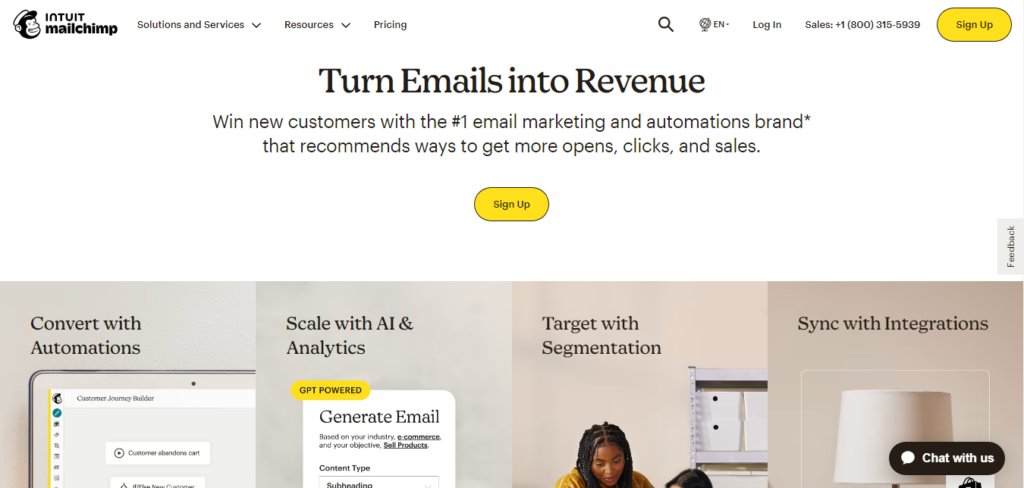
Known for its user-friendly interface, extensive template library, and marketing automation capabilities, Mailchimp is a popular choice for beginners and small businesses. It offers various pricing plans, including a free tier for companies with limited subscribers.
Its “freemium” model allows users to use certain features for free up to a certain number of subscribers.
Established in 2001, it was founded by Ben Chestnut and Dan Kurzius and is based in Atlanta, Georgia, USA.
Critical features of Mailchimp include:
- It enables users to design, send, and track utilize email campaigns to connect with their target audience and drive engagement.
- The platform offers an assortment of email templates that can be customized.
- It provides automation tools to send automated emails based on triggers and actions, such as welcome messages, abandoned cart reminders, and birthday greetings.
- Users can segment their email lists according to different criteria, such as demographics, engagement, and past behavior, to send targeted and relevant content.
- It provides detailed insights and analytics on email campaign performance
- Constant Contact
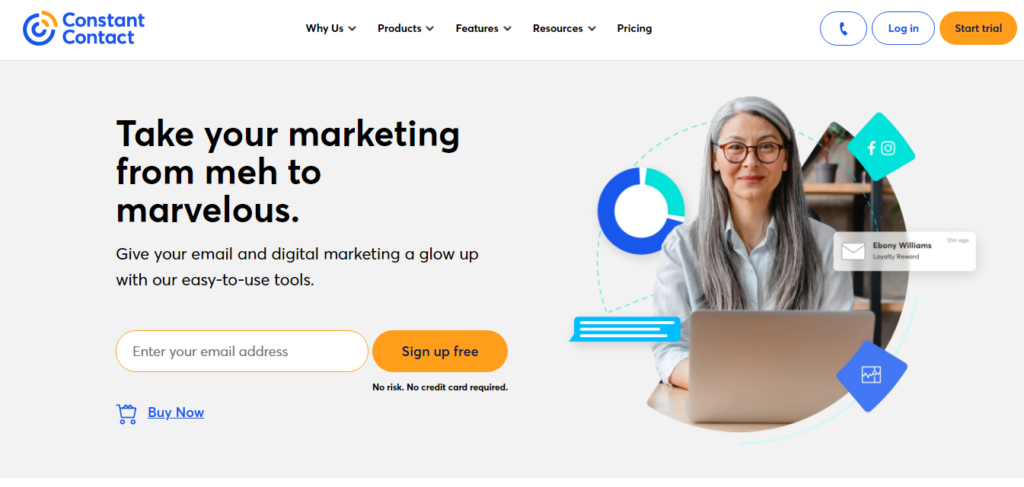
Constant Contact is well-regarded for its ease of use, automation features, and excellent customer support. It provides customizable templates and various marketing tools at different price points.
It was founded in 1995 and is based in Waltham, Massachusetts.
Critical features of Constant Contact include:
- The platform enables users to promote and manage events through email invitations, online registration, and event promotion tools.
- Constant Contact allows users to design and send customized email campaigns to their subscriber lists.
- It integrates with social media platforms, allowing users to plan and oversee social media posts while monitoring engagement.
- Users can create and distribute surveys and polls to gather valuable insights and feedback from their audience.
- Constant Contact provides tools for managing email lists, contacts, and subscriber preferences.
- ConvertKit

ConvertKit is favored by content creators and bloggers for its focus on automation and subscriber segmentation. It offers straightforward pricing based on the number of subscribers, making it suitable for growing small businesses.
The platform’s focus on helping creators build authentic relationships with their audience through personalized and relevant email marketing sets it apart from other email marketing services.
Established in 2013, it was founded by Nathan Barry and is based in Boise, Idaho, USA.
Critical features of ConvertKit include:
- It offers powerful automation tools enabling users to generate automated email sequences triggered by specific actions, such as user behavior, sign-ups, and purchases.
- It emphasizes using tags and segmentation to help users organize their subscribers and send targeted content tailored to their interests and behavior.
- The platform provides customizable landing pages and opt-in forms to capture leads and grow the subscriber list.
- It integrates with various third-party tools, including e-commerce platforms, membership sites, and other marketing tools.
- GetResponse
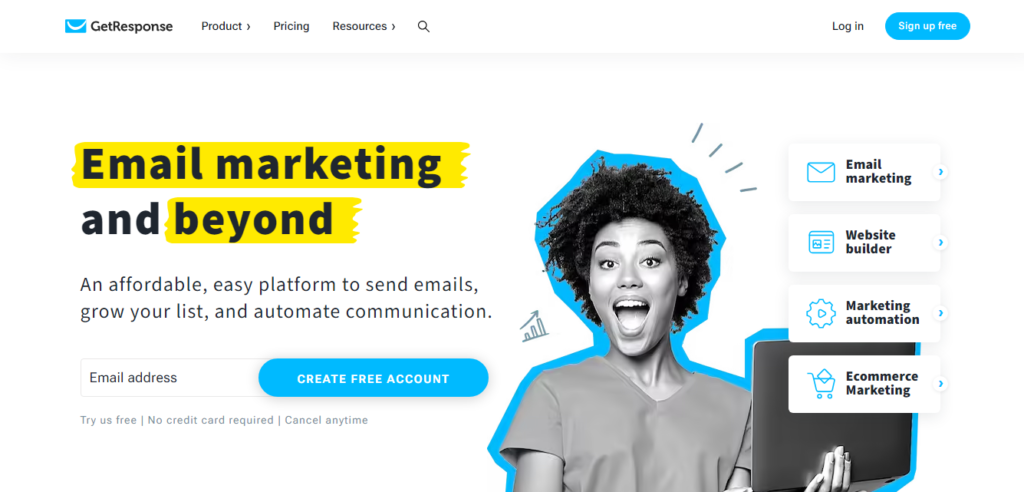
GetResponse offers a user-friendly interface, marketing automation, and landing page creation, making it a comprehensive solution for small businesses. It provides flexible pricing based on subscriber count. Its complete features make it popular for marketers and companies looking for an all-in-one marketing solution.
It was founded in 1999 by Simon Grabowski and is headquartered in Gdańsk, Poland.
Critical features of GetResponse include:
- It offers a user-friendly email editor and a library of templates to create engaging email campaigns.
- The platform offers powerful automation features to build automated workflows depending on user behavior to enable personalized engagement with subscribers at different customer journey phases.
- With built-in webinar features, users can host live webinars and automated webinars.
- It offers pre-built sales funnel templates to guide users in creating efficient sales funnels for their products or services.
- The platform integrates with various e-commerce platforms, making it suitable for businesses promoting and selling products online.
- AWeber
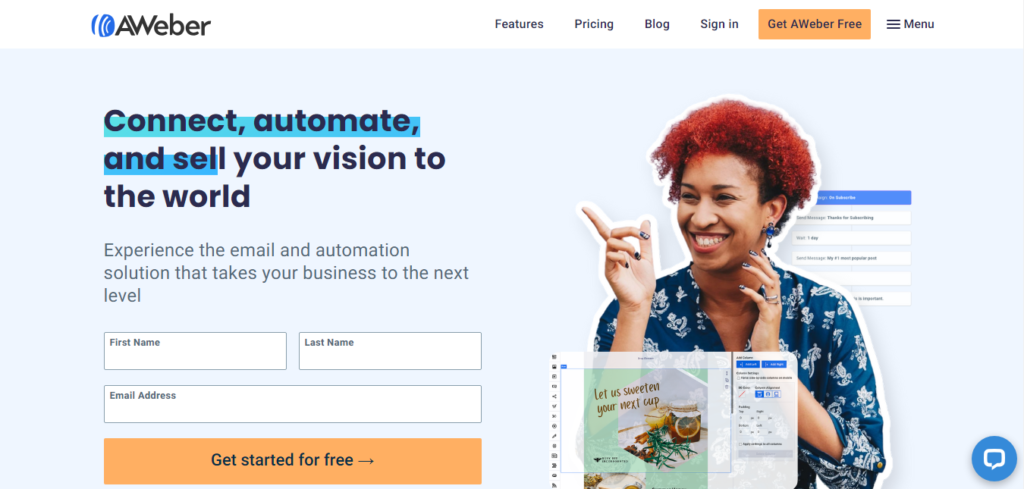
AWeber is a favored option among small and medium-sized enterprises and individual entrepreneurs who want a straightforward and reliable email marketing solution. AWeber is known for its reliability and email deliverability rates. It offers easy-to-use features, a wide range of templates, and reasonable pricing, making it a good choice for small businesses.
Established in 1998, it was founded by Tom Kulzer and is based in Chalfont, Pennsylvania.
Critical features of AWeber include:
- AWeber allows users to design and send professional-looking emails and newsletters to their subscriber lists.
- AWeber enables users to segment their email lists based on subscriber data and behavior, allowing targeted and personalized email campaigns.
- Users can use web push notifications to engage with their website visitors even if they haven’t subscribed to the email list.
- It is known for its responsive customer support, offering assistance through various channels like email, chat, and phone.
- Sendinblue
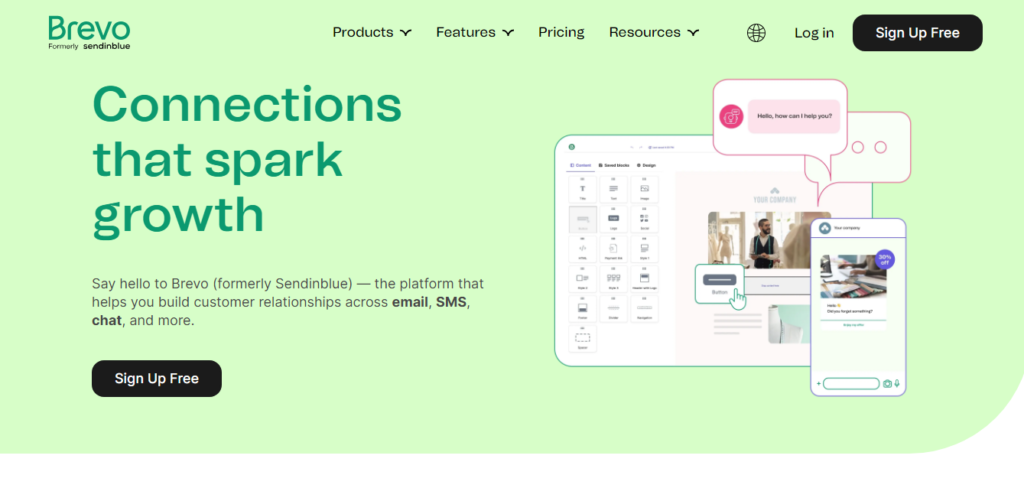
Sendinblue is popular among small and medium-sized businesses because of its user-friendly interface, budget-friendly pricing, and comprehensive marketing tools.
Sendinblue provides an all-in-one marketing platform with email marketing, SMS marketing, and more. It is known for its affordable pricing and scalability, making it suitable for small businesses looking to expand their marketing efforts.
It was founded in 2007 by Armand Thiberge and is headquartered in Paris, France.
Critical features of Sendinblue include:
- It offers email templates, drag-and-drop editing, and automation options.
- The platform allows users to send SMS messages to their contacts and set up marketing campaigns for better customer engagement.
- Users can send transactional emails, such as order confirmations and password resets, to their customers through Sendinblue’s SMTP service.
- Sendinblue provides essential customer relationship management (CRM) features to manage contacts and segment them based on various criteria.
- The platform offers a landing page builder and customizable signup forms to capture leads and grow the subscriber list.
- Sendinblue incorporates a live chat functionality enabling businesses to engage with website visitors in real time and provide immediate support.
FAQs
Q1. How Much Does Email Marketing Cost For Small Businesses?
A. The cost of email marketing for small businesses can vary depending on the chosen email marketing service provider and the subscriber list size. On average, it can range from $9 to $500 per month.
Q2. Which Email Marketing Platform Is Best For Small Businesses?
A. Mailchimp and Constant Contact are popular email marketing platforms widely considered the best options for small businesses. They offer user-friendly interfaces, extensive template libraries, marketing automation, and excellent customer support. Other suitable choices include ConvertKit, GetResponse, AWeber, and Sendinblue, each with unique features and pricing. Ultimately, the best platform depends on specific business requirements and preferences.
Q3. Is Email Marketing Effective For Small Businesses?
A. Yes, email marketing is highly effective for small businesses. It offers a cost-effective, targeted, and measurable way to engage with its audience and drive results.
Conclusion
I hope you understand why email marketing is essential for small businesses and how to get the most out of it.
Even if you’re an experienced email marketer or are just getting started.
Implementing these tips and tricks can assist you in creating compelling campaigns that generate leads and drive results.
If you have any doubts about email marketing for small businesses or want to improve your current marketing strategy,
Feel free to contact us today. We will be happy to help you.
Thanks for reading 🙂

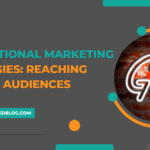
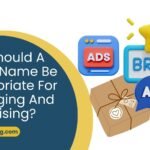
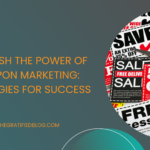
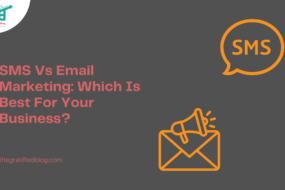



No Comments